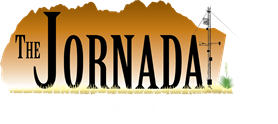| Title | Collaboration, interdisciplinary thinking, and communication: new approaches to K–12 ecology education |
| Publication Type | Journal Article |
| Year of Publication | 2015 |
| Authors | Bestelmeyer S, Elser MM, Spellman KV, Sparrow EB, Haan-Amato S, Keener A |
| Journal | Frontiers in Ecology and the Environment |
| Volume | 13 |
| Issue | 1 |
| Start Page | 37 |
| Pagination | 37-43 |
| Date Published | 02/2015 |
| Accession Number | JRN54147 |
| ARIS Log Number | 314216 |
| Keywords | collaboration, communication skills, interdisciplinary thinking, K-12 ecology education |
| Abstract | Ecologists often engage in global-scale research through partnerships among scientists from many disciplines. Such research projects require collaboration, interdisciplinary thinking, and strong communication skills. We advocate including these three practices as an integral part of ecology education at the kindergarten through 12th grade (K–12) level, as opposed to waiting until the graduate level. Current discourse about K–12 ecology education focuses on promoting lessons in which students learn science by conducting research rather than simply reading textbooks. Here, we present five models of K–12 ecology education programs that emphasize collaboration, interdisciplinary thinking, and communication within student research projects on the ecology of drylands and other ecosystems. Such practices not only provide additional skills for future ecologists but also prepare students for success in any career as well as for ecologically literate citizenship. |
| URL | /files/bibliography/15-005.pdf |
| DOI | 10.1890/140130 |


